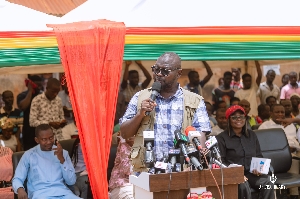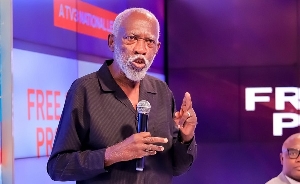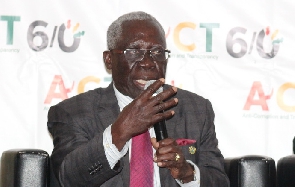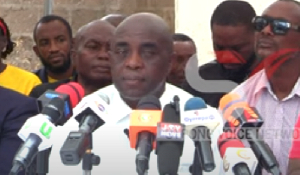Mob justice/injustice/instant justice is ingrained and, somehow, institutionalized in our body politic. Virulent and visceral attacks on people who have committed crimes or are suspected of committing crimes, and even those perceived to be criminals are not unusual.
However, the traumatic brutalization of Maj. Maxwell Adam Mahama, appears to have pierced the conscience of the nation. Apparently, this has resulted in some serious introspection on how we respond to allegations of crime.
I only hope this “new” consciousness marks the beginning of a new dawn, and not some nine-day wonder. For the issue to have featured in the vetting of Justice Sophia Akuffo suggests that the concern may be real rather than the usual news making-induced optics and rhetoric.
Nonetheless, I am of the view that the events and the circumstances leading up to the murder of the Major, and the murder itself are parallel to many other things in our society. We have a penchant for mob brutality.
It has many manifestations, ranging from the polished and seemingly innocuous to the extremely brutal and tragic. Mob brutality may even qualify as a Ghanaian pastime.(The same may be said of some other countries too.) Our efforts to minimize or completely root out mob justice/injustice won’t be successful until we address the many facets of mob brutality.
What happened to the Major is not unusual, and not out of the blue. I say so not because thieves and suspected thieves/robbers are lynched every day. I say so because, daily, you will find crude yet“sanitized” forms of such acts being done to people. I often find cringeworthy and disheartening, the attacks and character assassinations that take place on various media outlets.
Isn’t it common knowledge, how the media often leads the assault on people, and gets the public to subject them to mob justice/injustice through yellow journalism about perceived or reported improprieties?
Politically engineered exposés of corruption and sex scandals among others, later on revealed to be false, have often littered our media space. The sex-for-jobs tirade against the current EC chair, Charlotte Osei, is a case in point. So was the alleged sexual assault of the GTV make-up artist against President Akufo-Addo sometime ago,then presidential candidate. The list is endless.
Interestingly, there is never a shortage of hired-mouths and “party guerrillas” who will peddle such lies and falsehoods about others, and go ahead to swear those things are true.
How many times have people’s careers been truncated, and how many times have corporations been metaphorically and literally snuffed out just because they were not granted an opportunity for defense or a fair hearing after allegations were made against them?
What became of the cases against Kinapharma, and Tobinco a few years ago? The issue of mob brutality is not entirely a politically-based phenomenon. Lately, there are some videos and posts in circulation purporting that movie director and producer, Kofi Asamoah’s latest work, “John and John” was a plagiarization of Tim Greene’s “Skeem”. Without checking the veracity of that claim several netizens have gone on to share those videos and posts.
Thus, perpetuating the falsehood that he’s done something unethical and egregious. As the facts will show, even before he premiered “John and John” he asserted that it was an adaptation of “Skeem” and credited the appropriate source(s). So, why then do people continue to denigrate him for something he is not even guilty of? Is it because they don’t know, or they just don’t care to know?
It is imperative that we cultivate and promote a culture where we verify and clarify information before we act. It may be okay if we choose to be quick to listen to (or watch) the allegations that are put out there about people. But most importantly, we must be guarded and responsible in our response.
It has been noted that an increasing regard for human life is central to effectively rooting out instant justice. This point hints at the need for us to appreciate the sanctity of human life.
That is spot on, and I agree. I will add that a genuine regard for human life includes the recognition and appreciation of each person’s inherent worth and value, and a regard for their dignity and reputation too.
- Major Mahama murder: No show at mini-trial; case adjourned to June 14
- Dear Maxwell, your boys are growing - Late Major Mahama’s wife writes emotional note
- Court warns lawyer over absence in court for the trial of Major Mahama's murder
- Maj. Mahama trial: Statement was not imposed on accused person - Witness
- Major Mahama Trial: There is no pressure on the Police to investigate case
- Read all related articles













